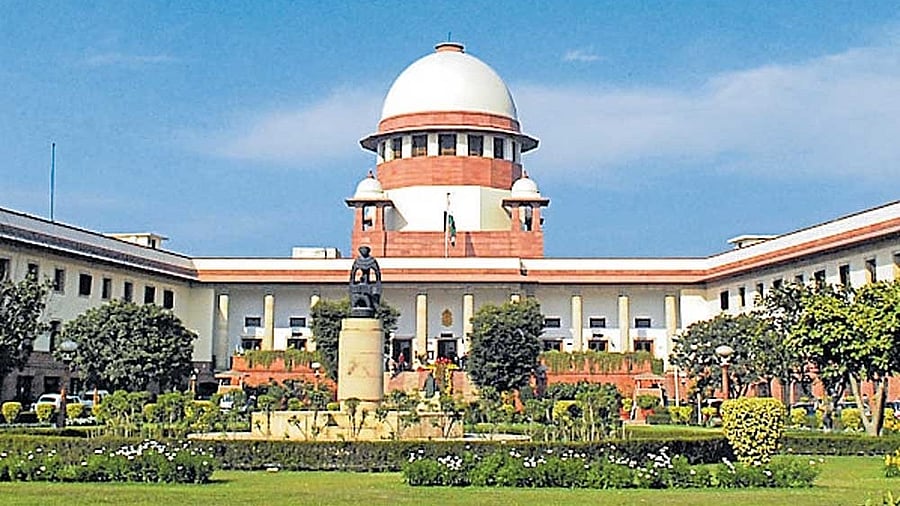
The Supreme Court
Credit: DH file photo
Observing that it is difficult to say that Article 370 can never be abrogated, the Supreme Court on Thursday said one thing is clear that Jammu and Kashmir’s sovereignty was completely ceded to the Union of India and there are various shades of concurrence in the Constitution but it does not affect the sovereignty of the Union.
"Article 1 of the Constitution says that India shall be ‘a Union of States’ and that it includes the State of Jammu and Kashmir, therefore the sovereignty was complete," a five-judge Constitution bench headed by Chief Justice of India D Y Chandrachud and Justices Sanjay Kishan Kaul, Sanjiv Khanna, B R Gavai, and Surya Kant, said.
The court was hearing a batch of petitions challenging the dilution of the Article 370, which accorded special status to the erstwhile state of Jammu and Kashmir.
Upon hearing arguments of Zafar Shah on behalf of the petitioners, the bench pointed out, “there was no conditional surrender of sovereignty to the dominion of India. The surrender of sovereignty was absolutely complete”.
The court said Parliament has exclusive power to make any law with prevention of activities directed towards disclaiming, questioning, or disrupting the sovereignty and territorial integrity of India.
The constitutional order of 1972 makes it beyond the pale of doubt that sovereignty vested exclusively in India. Therefore, no vestige of sovereignty was retained post the Instrument of Accession, the bench added.
The court also asked Shah as to what is superior, the Constitution of India or J&K Constitution. Shah said of course, the Indian Constitution.
"Take a case of an Indian state apart from J&K, there are restraints in power of Parliament to enact laws…..even today Parliament can’t enact a law on the State List….these restraints in the power of Parliament are equally consistent with sovereignty of all the other Indian states vesting in dominion of India…see the distribution of legislative powers does not affect the sovereignty. There are certain areas where Parliament cannot touch something which relates to State List items,” the bench said.
The court also pointed out merely Parliament is completely disabled from touching a State List item while enacting a law, does it detract from the fact that all these states ceded sovereignty to the dominion of India.
“There are other fetters on the Parliament. GST, which is another fetter….these are all fetters which do not dilute sovereignty….cannot read post Article 370 Constitution as somehow a document which retains some element of sovereignty in J&K,” the bench said.
Shah said he was claiming the state's right not to apply any law of the Parliament unless he did not concur with that.
The bench then said that concurrence is not something unique only to the relationship of the Union with J&K and there are various shades of concurrence required in the Constitution and that it does not affect the sovereignty of the Union, these are fetters.
In his submission, Shah contended that the genesis of framing the Constitution of J&K is rooted in the nature of the Instrument of Accession as well as the Proclamation of 1948. He said that is why there was a Constitution for the State and the residual power of the Maharaja came to be subsumed by Article 370. Shah stressed that concurrence is used in Article 370 instead of consultation and both parties have to agree, and J&K has constitutional autonomy, laws cannot be made without concurrence. Shah submitted that J&K has constitutional autonomy which stems from the IOA and Article 370 of the Constitution.
The bench asked him did Article 370 become permanent because the machinery equipped to abrogate it was not in existence anymore? The bench said orally that it is difficult to say that Article 370 can never be abrogated. The bench also asked Shah, what happens to Article 370 in a scenario if the J&K State itself wants all provisions of the Indian Constitution to apply.
